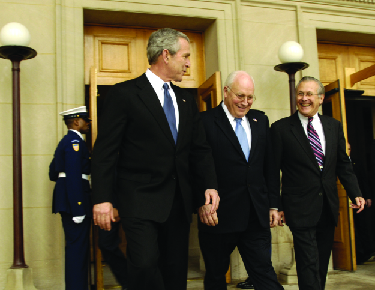| << Chapter < Page | Chapter >> Page > |
Two particular events in foreign policy caused many to change their views about the proper approach to U.S. involvement in world affairs. First, the debacle of U.S. involvement in the civil war in Vietnam in the years leading up to 1973 caused many to rethink the country’s traditional containment approach to the Cold War. Containment was the U.S. foreign policy goal of limiting the spread of communism. In Vietnam the United States supported one governing faction within the country (democratic South Vietnam), whereas the Soviet Union supported the opposing governing faction (communist North Vietnam). The U.S. military approach of battlefield engagement did not translate well to the jungles of Vietnam, where “guerilla warfare” predominated.
Skeptics became particularly pessimistic about liberal internationalism given how poorly the conflict in Vietnam had played out. U.S. military forces withdrew from South Vietnam in 1973, and Saigon, its capital, fell to North Vietnam and the communists eighteen months later. Many of those pessimists then became neoconservatives on foreign policy.
Neoconservatives believe that rather than exercising restraint and always using international organizations as the path to international outcomes, the United States should aggressively use its might to promote its values and ideals around the world. The aggressive use (or threat) of hard power is the core value of neoconservatism . Acting unilaterally is acceptable in this view, as is adopting a preemptive strategy in which the United States intervenes militarily before the enemy can make its move. Preemption is a new idea; the United States has tended to be retaliatory in its use of military force, as in the case of Pearl Harbor at the start of World War II. Examples of neoconservativism in action are the 1980s U.S. campaigns in Central American countries to turn back communism under President Ronald Reagan, the Iraq War of 2003 led by President George W. Bush and his vice president Dick Cheney ( [link] ), and the use of drones as counterterrorism weapons during the Obama administration.

Neo-isolationism, like earlier isolationism, advocates keeping free of foreign entanglements. Yet no advanced industrial democracy completely separates itself from the rest of the world. Foreign markets beckon, tourism helps spur economic development at home and abroad, and global environmental challenges require cross-national conversation. In the twenty-first century, neo-isolationism means distancing the United States from the United Nations and other international organizations that get in the way. The strategy of selective engagement —retaining a strong military presence and remaining engaged across the world through alliances and formal installations—is used to protect the national security interests of the United States. However, this strategy also seeks to avoid being the world’s policeman.

Notification Switch
Would you like to follow the 'American government' conversation and receive update notifications?